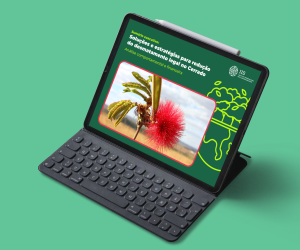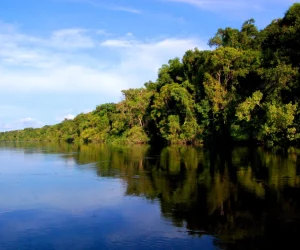Increasing agricultural output while avoiding deforestation – Mato Grosso State analysis
The purpose of this study was to inform debates associated with Reducing Emissions from Deforestation and Forest Degradation (REDD+) and sustainable supply chains strategies about the implementation gap and practical on-the-ground solutions for conciliating agriculture productivity increase and avoided deforestation. It focuses at the producer level, investigating financial requirements, and at a broader implementation level, discussing possible financing and deliverable mechanisms.
This was an international initiative with projects in Latin America, Africa and Southeast Asia. IIS coordinated the analysis for Brazil, focused on the state of Mato Grosso.
Status: Completed.
Report from this study is available here
In this study we reproduced the concept of “Land-Neutral Agriculture Expansion” (Strassburg, 2012), which allows farmers to demonstrate that their agricultural expansion has not caused any direct or indirect impact on natural environments. In a context of incentives related to avoided deforestation, this mechanism allows those who implement it to claim avoided deforestation credits. In the absence of such mechanism, it can still be used to demonstrate commitment to sustainability goals, either to gain access to specific markets or to meet their or their partners’ sustainability commitments.
The LNAE mechanism consists of a series of coordinated steps to link concerted efforts of expanding agriculture into a certain area and mitigating or compensating the displacement of the original production in the area. Such efforts can be understood as a closed system with zero land leakage. This closed system would merit a very robust claim on avoiding deforestation proportional to the land leakage that would have occurred if it had not been carried out.









